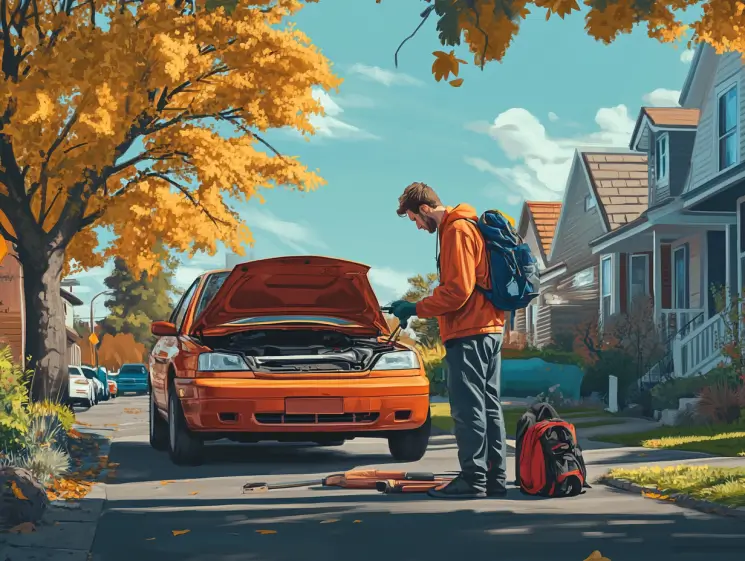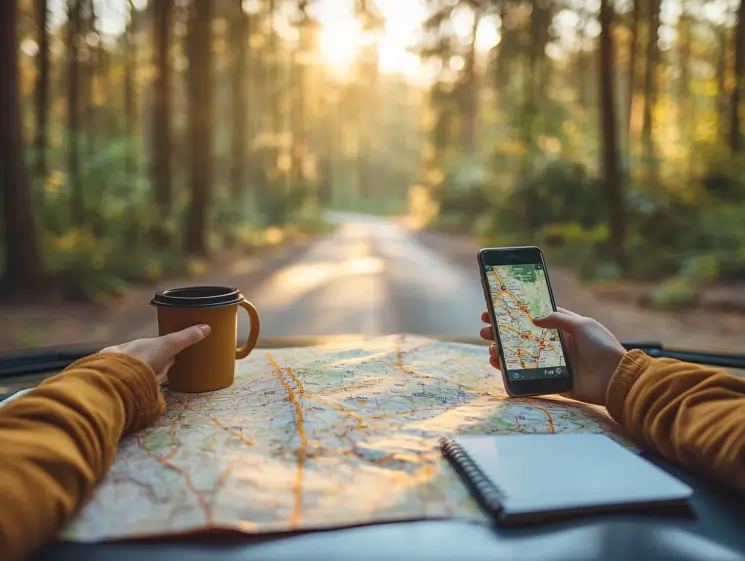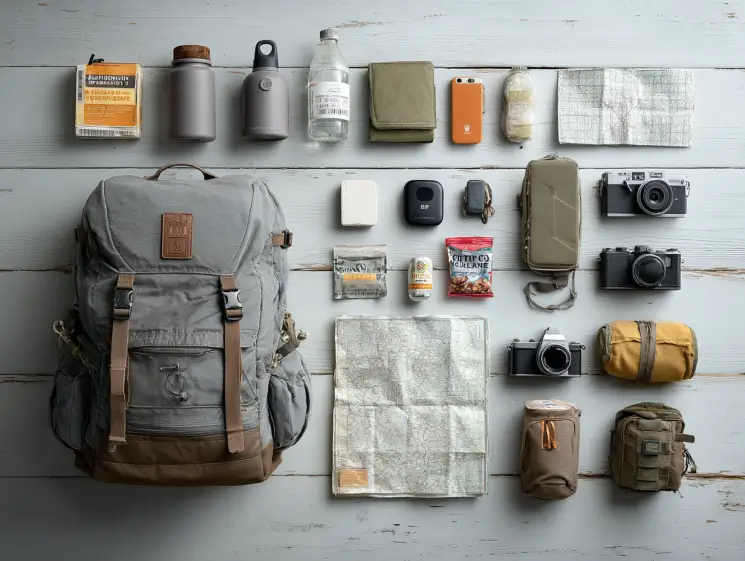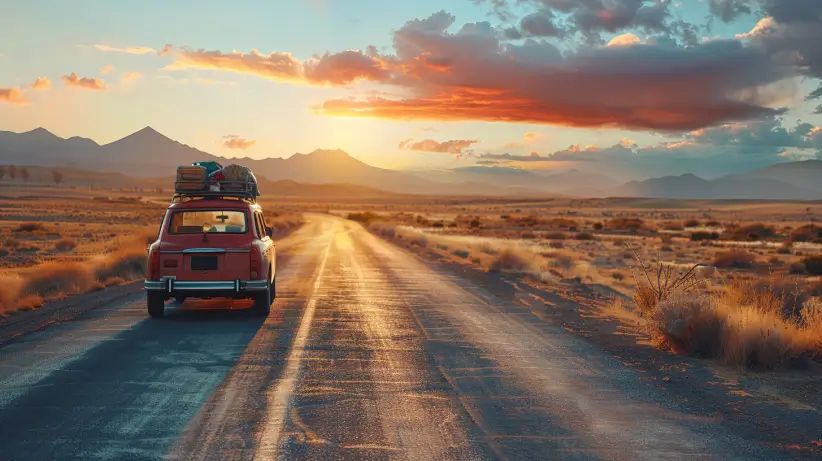Planning a solo road trip across the country is more than just mapping a route — it’s designing your adventure. With complete freedom, you get to choose every twist, turn, and destination. But this level of independence also means you’re responsible for the prep, the driving, and the problem-solving. Whether you’re embarking on a soul-searching journey or seeking hidden gems across states, this guide will help you plan your solo cross-country road trip like a pro.
Why Take a Solo Road Trip Across the Country?
Driving solo across the country isn’t just a journey — it’s a transformative experience. You’ll discover new places and, more importantly, rediscover yourself. It’s about setting your own pace, indulging your curiosity, and learning how self-reliant you really are.
Key benefits:
- Total freedom to stop wherever and whenever you like
- Perfect for introverts or solo travelers craving peace
- Boosts confidence and independence
- Opportunity to explore offbeat locations not included in typical itineraries
Step 1: Choose the Right Vehicle

Your car is your most important travel companion. Whether you’re driving your own car or renting one, make sure it’s comfortable, fuel-efficient, and road-trip ready.
Checklist for your vehicle:
- Recent oil change and full tune-up
- Tire pressure, brakes, and lights checked
- Emergency kit: jumper cables, flashlight, first aid, extra water
- Spare tire (full-sized if possible)
- Roadside assistance coverage (AAA, CAA, or similar)
Bonus Tip: For EV drivers, plan your charging stops using apps like ChargeHub or PlugShare.
Also Read: Travel Safety Checklist Before Every Trip: Don’t Just Pack — Prepare
Step 2: Map Your Route — But Stay Flexible

Start with a rough sketch of your destinations, but leave space for spontaneous detours and hidden gems. Use Google Maps, Roadtrippers, or Furkot to plan mileage and pit stops.
Popular Solo Road Trip Routes in the U.S.:
- Pacific Coast Highway (California)
- Route 66 (Chicago to Santa Monica)
- Blue Ridge Parkway (Virginia to North Carolina)
- Great Northern (Seattle to Bar Harbor)
Pro Tip: Download maps offline so you’re never stranded without GPS in remote areas.
Step 3: Book the Essentials — Then Go with the Flow

Reserve accommodations for your first few nights, especially if you’re traveling during peak season. Use Booking.com or Airbnb for flexibility, or go old-school and try motels along the route.
Accommodation Ideas for Solo Travelers:
- Boutique motels or B&Bs
- Campsites in national parks
- Hostels or traveler lodges
- Overnight stays in your car (only where it’s safe/legal)
Step 4: Pack Smart, Travel Light
When you’re alone, you’re your own porter. Bring only what you truly need, keeping organization and safety in mind.
Packing Essentials:
- Driver’s license, registration, and insurance papers
- Weather-appropriate clothing (layer up)
- Healthy snacks and plenty of water
- Navigation tools: phone, charger, paper maps
- Toiletries and medications
- Portable power bank
- Flashlight and emergency whistle
Also Read: Night Travel Tips for Solo Backpackers: Stay Safe, Smart, and Confident on the Road
Step 5: Create a Realistic Driving Schedule

Unlike group travel, solo road trips depend entirely on your energy levels. Avoid burnout by pacing yourself with 4–6 hours of driving per day, and build in time to explore.
Tips for driving solo:
- Start early — hit the road by 7 AM to maximize daylight
- Take breaks every 2–3 hours to stretch
- Don’t drive past sunset unless you’re in a safe, well-lit area
- Avoid long hauls on consecutive days
Step 6: Make the Drive Enjoyable
Solo driving can get dull — or deeply rewarding — depending on your playlist.
Entertainment Ideas:
- Audiobooks (try Audible)
- Podcasts (like “Stuff You Should Know” or “Travel with Rick Steves”)
- Curated Spotify road trip playlists
- Local AM/FM stations for regional flavor
Step 7: Stay Safe at Every Turn
Safety is non-negotiable when you’re traveling alone.
Solo Road Trip Safety Tips:
- Always share your itinerary with a friend or family member
- Check in daily via text or email
- Park in well-lit areas, lock your doors, and be aware of your surroundings
- Avoid isolated rest stops at night
- Carry a personal safety alarm or pepper spray (where legal)
- Trust your instincts — if something feels off, move on
Step 8: Explore Local, Eat Local
The joy of solo travel is getting lost — in the best way. Wander into a small-town diner, visit a local museum, or chat with shopkeepers.
Ways to enrich your experience:
- Use Yelp or TripAdvisor to find local food gems
- Visit farmers’ markets for fresh snacks
- Seek out oddball attractions: world’s largest ball of twine, anyone?
- Check community bulletin boards for events or concerts
Step 9: Embrace Flexibility
Some of your most memorable moments will be the ones you didn’t plan for — a roadside viewpoint, a quirky town, or a last-minute detour to a state park.
Be open to:
- Changing your route due to weather or mood
- Spending extra time in a town that surprises you
- Skipping a stop if you’re tired or not feeling it
Final Thoughts: You’re the Captain Now
Planning a solo road trip across the country is your ticket to self-discovery, independence, and unfiltered adventure. You’re in the driver’s seat, both literally and metaphorically. Trust yourself, plan smart, and embrace the unpredictability that makes the open road magical.
FAQs: How to Plan a Solo Road Trip Across the Country
Q1. Is it safe to take a solo road trip across the country?
Yes — with preparation. Stay in touch with someone back home, book safe accommodations, and trust your instincts.
Q2. How long should a solo road trip across the U.S. take?
Anywhere from 1 to 6 weeks, depending on how many states you want to cover and how much time you spend at each stop.
Q3. Should I rent a car or drive my own?
If your car is in good condition, use it. If you’re unsure about its reliability, renting a car might be safer.
Q4. What apps help with road trip planning?
Try Google Maps (download offline), Roadtrippers (attractions and stops), iOverlander (camping), and Spotify or Audible for entertainment.

Leave a Reply
You must be logged in to post a comment.